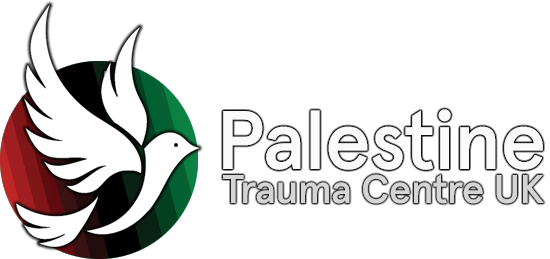Case Study
Sabah. H.
Background
Sabah H. is 51 years old and she lives in North Gaza. This is a farming area near the border and has been attacked many times. There are 13 in her family. The most important traumatic experiences she suffered were:
The martyrdom of her husband and four of her sons in the war of 2008 in front of all family members, in addition to the martyrdom of her son's wife, who was also a mother of two. Six, in total, died.
Having to keep the bodies of the martyrs for 16 days at home without burial because of Israeli shelling.
Partial destruction of the home because of direct Israeli shelling.
Physical harm to family members due to White Phosphorous.
The state of fear and panic the family experienced when exposed to the Israeli invasion during two wars. (2008-9 and November 2012)
Factors contributing to stress:
Destruction of farmland leading to loss of income for a year
Responsibility for looking after young children who are traumatised
Coping with her own grief over 4 years
Economic hardship
Her grandson is frightened, very nervous and aggressive. His academic achievement is poor.
Concerns
Sabah is psychologically trapped by the memory of the death of her children. She recalls the event many times with great emotional intensity. This repeated recollection is not helped by the many times she is asked to tell her story by media or other visitors.
Initial diagnosis
Severe Post-Traumatic Stress Disorder. She suffers from headaches, an inability to sleep, an extreme nervous state, fear and a sense of isolation, chronic weeping, a memory of the traumatic event of 2008 that is still emotionally powerful. She will not socialize and feels very insecure. She carries the burden of her whole family suffering from severe, multiple traumas and the effects of white phosphorus shelling. This all requires psychological and therapeutic intervention to support the whole family.
Intervention Plan
The Intervention Plan consists of 8 sessions, as follows: two pre assessment sessions, six therapeutic sessions and follow-up.
Family intervention: psychological intervention plan included: providing psychosocial support to family members to strengthen family relationships and strengthen the positive and reduce the negative aspects of their interaction. To enhance the leadership role of the mother in the management of the affairs of the family and provide help and advice to them all. To alleviate the stress on the small children by leading them in play activities, so highlighting their needs and not allowing them to be overwhelmed by Sabah’s grief.
Individual intervention: by providing individual treatment to Sabah such as Cognitive Behavioural therapy , Relaxation therapy , Mind-Body therapy and Focusing, in addition to providing treatments to the grandson such as Play therapy and drawing.
Later Date
Improvement signs
There has been a marked improvement in the state of the family as follows:
Ms. Sabah felt relieved when some symptoms such as chronic weeping and sleeplessness diminished. She is better able to perform her duties as a mother.
As well as the improved performance of the family socially, Ms. S. has become able to participate in various social events and improve her relationships with relatives, neighbours and friends. She is now willing to go to markets to buy her home needs.
The grandson has become less aggressive, especially with his brothers and friends. His sleep has improved and he now goes to school regularly.
